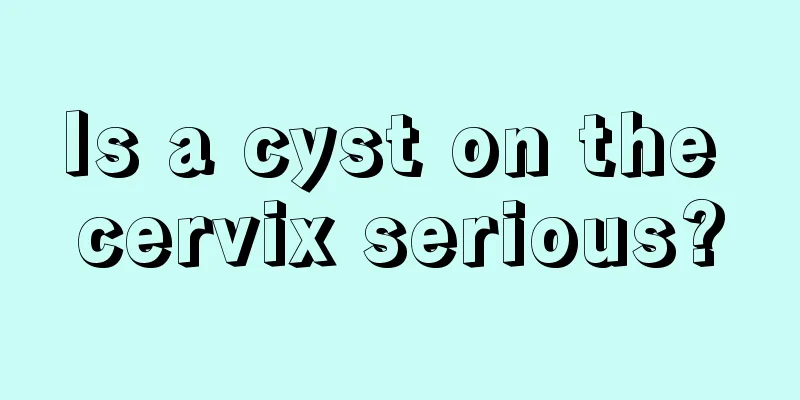What are the most common causes of female infertility?

|
In recent years, the incidence of female infertility has been increasing. From a clinical perspective, common causes of this disease include ovarian cysts, endometrial abnormalities, abnormal ovulation, polycystic ovary syndrome, etc. If you have a normal sexual life after marriage, but still don't get pregnant after one year, you should go to the hospital for relevant examinations to determine the cause of infertility, and then receive professional treatment based on the cause. 1. Ovarian cyst: Ovarian cyst is a benign tumor in the female reproductive organ, mostly caused by endocrine disorders and excessive acidification of body tissues. The most common symptom caused by this disease is female infertility, because ovarian cysts can cause the eggs to lose their development, maturation and discharge functions, and may also interfere with the secretion of ovarian hormones. 2. Endometrial abnormality: The endometrium grows in other parts outside the endometrium, mostly due to menstrual diseases or abnormal uterine position caused by patients mostly show irregular menstrual cycles, abnormal menstrual flow, follicular development disorders, etc. If this disease is not treated in time, it is very likely to lead to female infertility. 3. Fallopian tube abnormalities: Fallopian tube blockage, fallopian tube malformation and hydrosalpinx are all fallopian tube abnormalities, mostly caused by infection caused by miscarriage or gynecological inflammation. Most patients show symptoms of incomplete fallopian tube development, occult malformation and congenital closure, which is likely to cause infertility in the long run. 4. Abnormal ovulation: refers to no ovulation, infrequent ovulation or irregular ovulation. Abnormal ovulation can lead to infertility. Anovulation can be caused by poor follicular development or a problem in the release of the egg from the follicular fluid. 5. Polycystic ovary syndrome (PCOS): It is a disease in which the ovaries produce excessive androgen and many small vesicles. PCOS causes hormone imbalance, which can lead to ovulation problems. Women diagnosed with PCOS often have low FSH and high levels of LH. FSH can stimulate the growth of follicles in the ovaries and produce mature eggs. If you lack FSH for a long time, your follicles will not mature and you will not ovulate, which will cause infertility. The immature follicles in the ovaries form small cysts. High levels of LH produce excess estrogen and androgen. High levels of estrogen can thicken the lining of the uterus, causing heavy and/or irregular menstruation; long-term high androgen levels can cause acne and hirsutism. |
<<: What is the reason for women's lower back cold
>>: What are the main causes of primary dysmenorrhea?
Recommend
Is uniform uterine echo serious? How to maintain it?
The uterus is one of the most important reproduct...
Is it good for the elderly to walk with their hands behind their backs? Keeping your chest and head high has many benefits and is more beneficial to your health
Correcting a posture cured an elderly person'...
What to do if you have mastitis during lactation?
Many women are susceptible to adenitis during the...
What causes brain atrophy?
1. Genetic factors: Many studies at home and abro...
What are the methods to prevent and treat infertility?
According to relevant surveys, more and more fema...
If a physical examination reveals nodules, polyps, cysts, and hyperplasia, does that mean cancer is coming?
"Nodules", "polyps", "cy...
Female urethra urination diagram
The urethra is the male reproductive organ that a...
Will sitting for a long time make your butt bigger? Why does sitting for a long time make your butt bigger?
According to statistics, office workers spend an a...
How to maintain a woman at the age of 38
Women enter the aging stage after the age of 25. ...
Menstrual cramping pain from anus to rectum
The twitching pain in the anus and rectum is due ...
Can I remove the gas cup when I have my period?
Menstruation is a normal menstrual cycle for wome...
Why does the mother's tailbone hurt?
It is said that the ten months of pregnancy are t...
Early menstruation and prolonged menstruation
Prolonged menstruation refers to menstruation las...
TCM treatment of gynecological inflammation
I believe everyone is familiar with gynecological...
Women always feel that their urine is not clean
Some women have the symptom of not being able to ...









